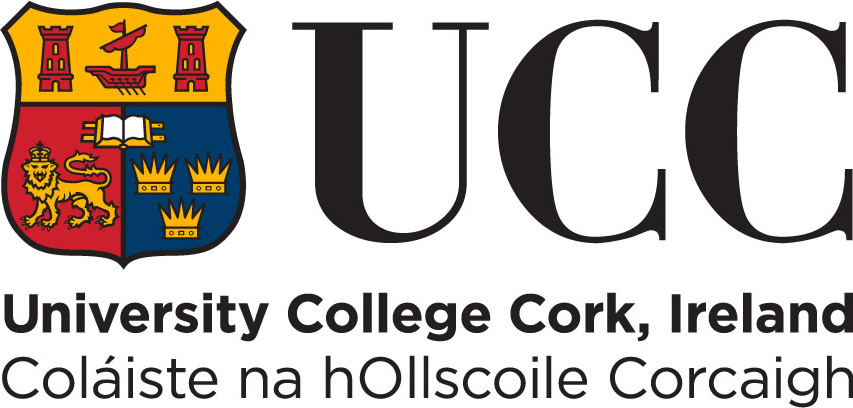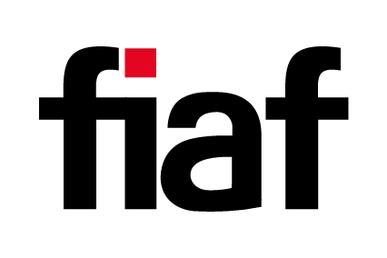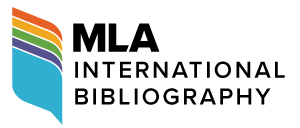Roland Barthes and Film: Myth, Eroticism and Poetics, by Patrick ffrench. Bloomsbury Academic, 2020, 311 pp.
Josh Heaps
Review
Patrick ffrench’s Roland Barthes and Film: Myth, Eroticism and Poetics is dizzying in scope; at just under 300 pages, this newest addition to Bloomsbury’s “Film Thinks” series is dense and sinewy, with over 1,000 footnotes. While the book may not befor the casual Barthes fan, this is not a reflection on ffrench’s writing but rather an indication that Barthes’ philosophical attitude, including his foray into cinema, is persistently revisionary and complex. To borrow from ffrench, who borrows in turn from Gilles Deleuze, Barthes’ trajectory can be understood as one of “becoming-Barthes” (53). But who is it exactly that Barthes becomes?
Though ffrench never spells it out for his readers—an ambiguous rhetorical strategy similar to Barthes’ own—he works toward an answer on a number of levels. At its simplest, Roland Barthes and Film traces Barthes’ complicated relationship with the screen, walking the reader through each of his filmic, and film-adjacent, writings to demonstrate that, though Barthes often said otherwise, cinema played a significant role in his life. Further, in tracing the slow dissolution of Barthes’ structuralism, ffrench demonstrates Barthes’ shift towards a new way of thinking. Though never explicitly stated, Barthes’ essayistic tendencies become more pronounced as he begins to value emotion and subjectivity over theory. Barthes turns inward, and it is in doing so that he finds a way to write about the medium that so bewildered him.
It is worth noting that ffrench’s own distance from the movies—he is Professor of Literature at King’s College London—makes him an ideal candidate to write about Barthes, who was reticent to identify with film. ffrench approaches cinema obliquely, employing a number of equally proximate thinkers to explore Barthes’ shifting opinions on cinema and its tangents; Chapter Four, for example, is devoted solelyto philosophical reactions to Barthes seminal essay “The Third Meaning”. While this is entirely necessary, here I will focus on the more saliently cinematic aspects of Roland Barthes and Film.
To do so, I will be looking primarily at the book’s three major sections: Chapters One and Two, which uncover the role of the movies in Barthes’ early semiotic works, namely Mythologies; Chapters Three and Five on the essays “The Third Meaning” and “Leaving the Movie Theater”, respectively, which push Barthes into the realm of affect and subjectivity; and, finally, Chapter Six, where ffrench considers Camera Lucida: Reflections on Photography, Barthes’ last and most important study of the image. After establishing Barthes’ intellectual trajectory through each of these sections, I will briefly consider ffrench’s greater, and more conceptual, formulation: that of Barthes as essayist.
The first two chapters of Roland Barthes and Film demonstrate Barthes’ complicated relationship with images—moving and still—through early essays published in his famed Mythologies and elsewhere, namely the short-lived Revue international de filmologie and, afterwards, Le centre d’études des communications de masse. Through these writings, ffrench establishes Barthes’ deep-seated concerns with the screen; though it may seem as if the cinema’s rush of images was either toostimulating or not stimulating enough—Barthes’ recurring excuse was that “the film is boring or annoys me, save for this sequence”—ffrench demonstrates that there is much more to the theorist’s ambivalence than ennui (180). In fact, he writes, Barthes was disturbed by “what he calls the ‘paradox’ of photography”, the still image as a “message without a code” (79). The photo’s seeming contiguity with its referent makes it an analogical medium entirely unlike literature. By rough extension, Barthes would carry this anxiety over to the screen, albeit tenfold given cinema’s hurried procession of still images. Here, Barthes prefigures the work of Deleuze, Peter Wollen, and Christian Metz—the last of whom would consider Barthes a mentor—in puzzling over the screen’s language, or lack thereof; as ffrench writes, to Barthes, film “seems to disable analysis as such, to prevent any purchase on the signification of the image, and to constitute the visual image as a tautology—it just is what it is; it is what it shows” (79). Put simply, cinema short-circuited Barthes’ understanding of literary signs, and this disturbed him.
Still, ffrench stresses that beneath this frustration, one begins to see a glimmer of the more complex and affective thinker Barthes will—and perhaps, even here, desires—to become. It is striking, ffrench notes, how even in these early writings, Barthes cannot contain his fascination with certain piercing aspects of the image, in particular, the face. In his cryptic “The Face of Garbo”, Barthes contends that the actor’s physiognomy presents an almost Benjaminian aura; it is at once alive and dead, kinetic and lifeless—what Barthes call the “face-object” (23). ffrench demonstrates that it is in fact because Barthes cannot theorise Garbo’s screened face that he is so attracted to it: quoting Philip Watts, ffrench writes that Barthes’ “resistance to it is also a turn toward it; the moving image is both a source of critical distance, and a source of rapture” (2). Drawn by the magic of the image, and its counterpart in the movies, “Barthes will persistently seek to push the boundaries of analysis beyond the limits of semiology” (68).
I would be remiss not to mention the political dimension that ffrench weaves through his book, as Barthes’ work coincides with an increasingly politicised intellectual environment inspired by Marx, Freud, and Lacan. In accordance with Louis Althusser, Barthes considers the cinema at once ideologically dangerous andfreeing; though movies carry the risk of indoctrinating their viewers, the medium can also provoke an erotics, or jouissance, in the subject that bears the potential for an “‘other’ look, a counter image, another film, which subtly allows the glimpse of another order outside ideology” (36). To Barthes, the utopian power of the movies is twofold: at once counter-ideological and, perhaps more importantly,entirely personal. Though always attuned to the political dimensions of the screen, it is film’s subjective dimensions—à la Garbo—that Barthes will pursue in his later work.
In Barthes’ essay “The Third Meaning” his embryonic notions of an affective and phenomenological cinema begin to cohere; by extension, ffrench’s third chapter of the same name marks a profound turn towards establishing Barthes less as a powerhouse intellectual than as a sensitive and ultimately humanauthor. “The Third Meaning” was published in 1970 in an issue of Cahiers du Cinéma devoted to Sergei Eisenstein, a director whose attention to politics and theory in both his filmic practice and academic writings was well suited to the journal’s increasing militance. Acclimatising to France’s growing civil unrest, Cahiers, like much of its country’s intelligentsia, drew largely on Structuralism, engaging writers like Pascal Bonitzer and Barthes to form an ideological critique of art. In “The Third Meaning”, however, Barthes pursues an equally subjective train of thought by continuing his interrogation of the “paradox of the photo”. He explores a series of stills from Eisenstein’s movies, asking through them, as ffrench puts it, “where, in film, is the text to be identified; where is the significance, beyond the sign, the ‘work’ of meaning” (107)?[1] Here, Barthes pushes past the image’s denoted and connoted meaning—what it shows and what it symbolises—and towards its strange ability to puncture the spectator: “a third ‘supplementary’ level which [Barthes] names ‘obtuse’” (107). This third meaning is paradoxically defined by its semiotic liberation, a signifier without a signified whose power over the viewer—as stated earlier—is at once troubling andattractive.
It is in “The Third Meaning”, among other texts, where ffrench demonstrates Barthes' turn from theory to emotion; the essay “brings into play the shift in [Barthes’] own writing away from issues of ideology and codification” (107). As ffrench, writes, "the ‘emotive’ reception by Barthes as subject enter[s] into tension with the theoretically framed ‘materialist’ analysis of the text” (108). Though passion can be traced in Barthes’ earlier film work—Mythologies is at once a critique of myth and, in essays like “Garbo”, a poeticising of the image—“The Third Meaning” finds Barthes endowing film “with a quasi-phenomenological quality, a morality, and an affective status. The third meaning is not definitive; its reading is conjectural” (109). Furthering this theme of spectatorship, ffrench touches briefly on Barthes’ subsequent essay “Leaving the Movie Theater”, which projects the obtuse meaning from the screen into the space of the cinema theatre. To Barthes, the theatre’s hypnotic darkness and congregation of bodies contributes to the jouissance radiating from its flickering images; just as the third meaning can be used to counter cinema’s ideological lure, so too does the space of the theatre offer a way to unstick oneself from the film's powerful influence. Most striking, however, is Barthes’ continued push towards affect and subjectivity; “despite the lure of the screen”, ffrench stresses, the frustrated Barthes enjoys “the erotic possibilities allowed by the crepuscular anonymity of the cinema as a space” (186). In “Leaving the Movie Theater”, as in “The Third Meaning”, Barthes calls for a different and sympathetic way of understanding art; subsequently, a character begins to develop in these later writings: the rebirth of the “Author-God” Barthes killed off almost ten years before (“Death” 146).
Barthes’ subjectivity comes to a head in Camera Lucida, in which he demonstrates a new critical practice based on affect. Though the text is often understood as exploring the still image, ffrench problematises the separationof photography and film by demonstrating that Barthes considers the photograph the kernel of cinema; “a reflection of research into the essence or ‘noeme’ of photography is thus a precondition for a theory of film” (211). ffrench reconciles the two mediums and, in doing so, applies much of Camera Lucida to the screen. Both photography and cinema, then, are grounded in the capture of the “real”, and it is here where Barthes locates his obtuse meaning. Certain images, he posits, glimmer with the “thereness”of the captured referent; “the this has been of the photograph thus involves the resurrection of that which the subject knows to be dead” (213). Barthes’ famous example is the Winter Garden photo “in which he recognizes the true essence of his mother,” whose death inspired Camera Lucida (210). This picture, innocuous to anyone but Barthes, “captures something of her being” in ways that nothing else can (231). Beyond Camera Lucida, ffrench positions Barthes’ mother as the linchpin to her son’s filmic work, establishing a Proustian link between, for instance, the rice powder perfume she wore and the pallid face of Garbo. This last projectcasts a wholly personal light on Barthes’ oeuvre, rooting the third meaning, or punctum—the image’s piercing aspect—within a personal ontology: a futile “reliving of a past experience of what has been, but in the present” (239). Published in February 1980, only a number of days before the accident that would end Barthes’ life, Camera Lucida may cast a melancholic shadow over its author’s body of work, but—as ffrench shows—it also imbues it with life and history.Roland Barthes and Film draws attention to Barthes’ increasingly personal and loose rhetorical style, and it is in this light that it formulates Barthes as an essayist, a contemplative and experimental writer whose work floats somewhere between theory and art, fact and fiction, and poetry and literature; ffrench may not use the term explicitly, but it underlies his project’s attention to Barthes’ “approach which is ‘aslant,’ as with the ‘voice-off’ in film” (187). Barthes’ slow turn towards ambivalence and individuality indicates, consciously or not, an essayistic practice. Characterising this tendency is crucial, not only in understanding Barthes’ own work, but in appreciating his hope for the future of criticism and cinema—one less interested in the text||spectator binary than a technique “oscillating between resistance and fascination, critical distance and habitual, improvisatory jouissance” (95). When, in a Cahiers interview, “Barthes suggests that cinema has a responsibility not to offer ‘exact’ constructions of meaning, not to explicitly communicate this ‘final sense,’ but to ‘suspend’ meaning,” he is pushing for a new, namely essayistic, way to see the world (88).
While Roland Barthes and Film often indicates Barthes’ “wishes for a grammatical mode, which would ‘speak lightly’”, it does little to tie it all together; given ffrench’s care and research, it comes as a surprise that his two-page conclusion does little to typify Barthes’ belief that film provokes “other ways of seeing which mobilize the critical potential of fetishism, fascination, and affect so as to evoke the imagining of the ‘other film’” (187, 274). The reader is left wanting an ending that better explains what can be taken from Barthes’ complex and reflexive film theory. While ffrench’s indeterminacy is somewhat ameliorated in a podcast interview where he provides—however retroactively—the seeds of a more satisfying conclusion, it is perhaps best understood in the light of Barthes’ own rhetorical strategy: one less concerned with fact and accuracy than with investigation and heart.[2]
Notes
[1] It should be noted that in “The Third Meaning”, like in “The Face of Garbo”, Barthes considers film through static images. Not only is this ironic, given Eisenstein’s interest in fast-paced montage, but it also re-establishes a persistent tension in Barthes’ work between photography and film. His unwillingness to reconcile the two is explored in Camera Lucida.[2] On the New Books in Film podcast, ffrench characterises Barthes’ rhetorical approach as “a strictly human interrogation”, itself a quote from Barthes' essay “The World as Object” (1964). ffrench writes, “I don’t do this in the book, but I think one can think of [this phrase] as describing Barthes’ approach to film as such, as focused on ambivalence—not providing a kind of definitive theory of film or a naming of different objects, but a subtle human interrogation, which I think one could also see, this constant ambivalence, as a constant wish to imagine differently.” In texts like “The Third Meaning”, he continues, Barthes attempts “to imagine the other film, to unstick oneself from the allure of the screen by imagining differently. And I think that’s what film theory means for Barthes, to speculate and imagine differently—to use theory not as a kind of system or model but as a mode of interrogation”.
References
1. Althusser, Louis. “Ideology and Ideological State Apparatuses (Notes towards an Investigation).” Lenin and Philosophy and Other Essays,translated by Ben Brewster, NYU, 2001, pp. 85-126.
2. Barthes, Roland. Camera Lucida: Reflections on Photography.Translated by Richard Howard,Hill and Wang, 1980.
3. ---. “The Death of the Author.” Image / Music / Text, translated by Stephen Heath, Hill and Wang, 1977, pp. 142-7.
4. ---. “The Face of Garbo.” Mythologies, translated by Annette Lavers,Farrar, Straus and Giroux, 1972, pp. 56-8.
5. ---. “Leaving the Movie Theater.” The Rustle of Language, translated by Richard Howard,Hill and Wang, 1986, pp. 345-49.
6. ---. Mythologies.Translated by Annette Lavers, Farrar, Straus and Giroux, 1972.
7. ---. “The Third Meaning.” A Barthes Reader, edited by Susan Sontag, Hill and Wang, 1985, pp. 317-34.
8. Deleuze, Gilles, and Félix Guattari. A Thousand Plateaus. Translated by Brian Massumi, Minnesota UP, 1987.
9. “Patrick ffrench, ‘Roland Barthes and Film: Myth, Eroticism and Poetics.’” New Books in Film, 16 Sept. 2020, newbooksnetwork.com/patrick-ffrench-roland-barthes-and-film-myth-eroticism-and-poetics-bloomsbury-2019.
Suggested Citation
Heaps, Josh. “Roland Barthes and Film: Myth, Eroticism and Poetics, by Patrick ffrench.” Book Review. Alphaville: Journal of Film and Screen Media, no. 21, 2021, pp. 213–218, https://doi.org/10.33178/alpha.21.16
Josh Heaps is a film scholar and doctoral student at the University of North Carolina at Chapel Hill. While his current research surveys truth, form, and genre in experimental and documentary cinema, he maintains a strong interest in camp, cult, and horror.









